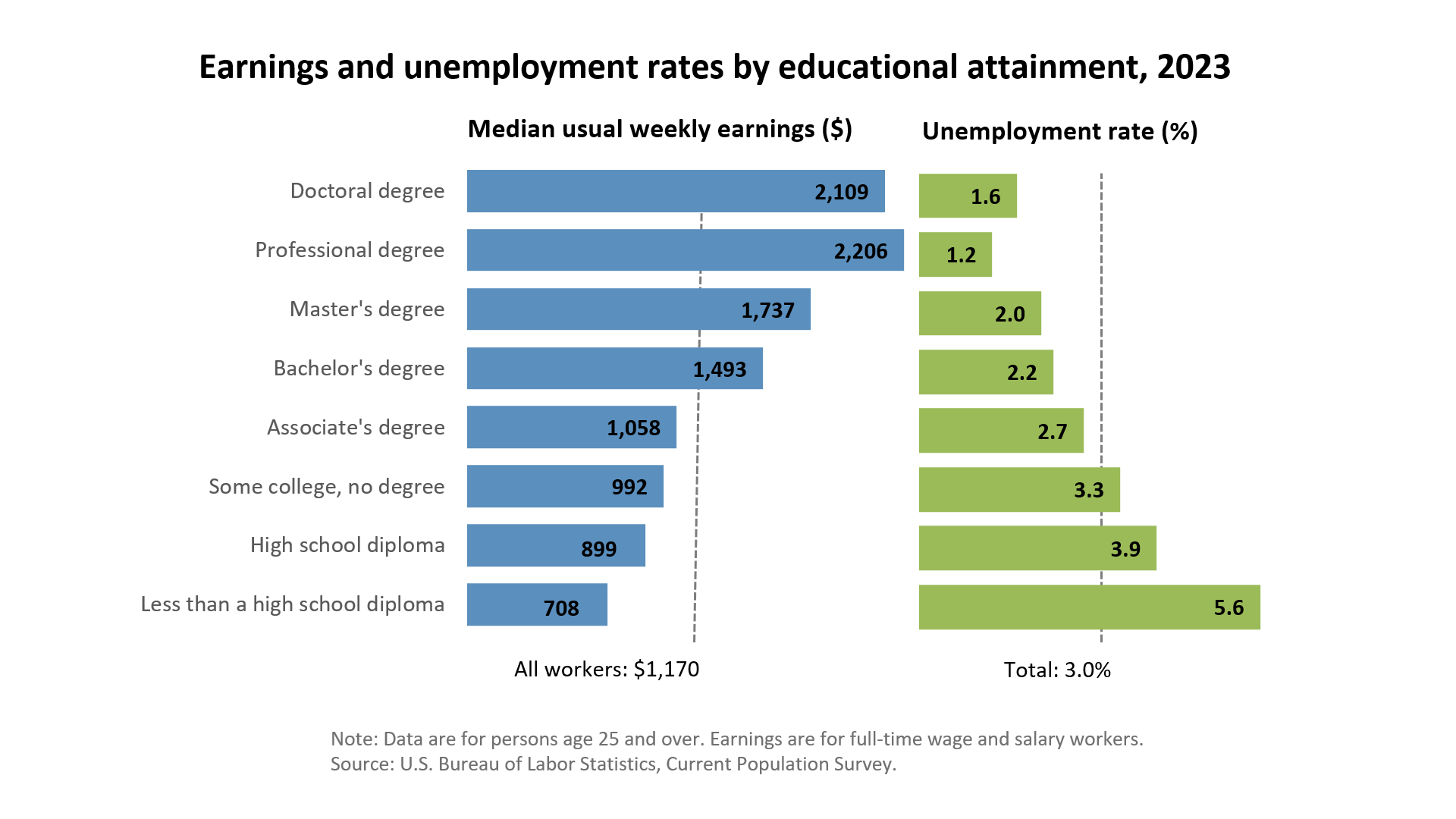Get Matched With Online Colleges
Tennessee State University is a four-year, public institution located in Nashville, Tennessee. It was established in 1912 and offers a variety of degree types, including bachelor’s, master’s, and doctoral degrees. A member-school of the Thurgood Marshall College Fund, the institution is the only state-funded historically black university in Tennessee. As a leading institution of higher learning in the United States, Tennessee State University provides students an opportunity to pursue both academic and personal growth.
Search All Programs
Overview of Tennessee State University
The university employs over 400 world-class faculty members full-time, the majority of whom strive to teach the most relevant information that will be applicable to real-world situations after graduation. The remaining faculty is dedicated to exploration and advancement, engaging in cutting-edge research intended to address various critical societal challenges. Others focus their efforts on public service and learning. As a result, students receive diverse and immersive instruction from exceptional professionals familiar with many different facets of their fields. Those enrolled regularly participate in research, service learning, internships, student life activities, cultural events, and study abroad opportunities.
As an HBCU and land grant institute, Tennessee State University is a premier public urban institution recognized for prominent innovation, instruction, research, creativity, and service. This is achieved through providing affordable and accessible educational programs at most degree levels and promoting academic excellence among students. Graduates enter the real-world as diverse leaders interested in scholarly inquiry, research, lifelong learning, and public service.
General Information
| School Type | Public |
|---|---|
| Campus Setting | City: Large |
| Campus Housing | Yes |
| Student Faculty Ratio | 14:1 |
| Graduation Rate | 32% |
| Year Founded | 1912 |

Student Enrollment
Total Students8,081
5,875
2,206
Undergraduate Student
Male 2,233
Female 3,643
Graduate Student
Male 838
Female 1,368
Explore Map
Top Rankings For Tennessee State University
Admissions
APPLICATIONSNA
ACCEPTANCENA
Acceptance RateNA
Enrollment NA
| Admissions | |
|---|---|
| Application Fee | $25 |
| High School GPA | NA |
| High School Rank | NA |
| High School Transcripts | NA |
| College Prep Courses | NA |
| Recommendations | NA |
| SAT/ACT | NA |
| TOEFL (Test of English as a Foreign Language) | NA |
| Application Deadline | November 1 |
| Common Application Accepted | No |
Tuition Cost & Financial Aid
The overall cost of attending Tennessee State University will depend on several factors including degree type, number of credit hours, residency, housing, and meal options. Additional mandatory fees also apply. This means students may not receive an official total until after registering for classes each fall. A tuition and fee calculator is available for prospective students, however.
It’s estimated that the tuition and fee rates for in-state, undergraduate students taking 15 credits will be $4,092 per semester. Out-of-state students taking the same number of credits should expect to pay an estimated $10,770. While 15-credit hours per semester is often considered standard, those signed up for more hours will pay more in tuition and fees. Individuals signed up for fewer credit hours will pay less.
The estimate above does not include the cost of housing, which varies based on the residence hall selected. Most options range from $1,325 for triple occupancy rooms and $3,742 for single occupancy rooms per semester. Students wishing to purchase meal plans (which are required for on-campus residents), will pay between $950 and $2,150, depending on the option selected. Commuter meal plans are available for $200.
Additionally, students must be prepared to pay for any necessary books and supplies. Tennessee State University estimates that those enrolled full-time will spend $300 to $900 on materials each semester.
Tennessee State University offers a number of financial aid sources to help students pay for their education including scholarships, grants, loans, and work study programs. Approximately 91% of full-time beginning undergraduate students receive some form of financial aid. In most cases, however, the amount received is not sufficient to meet all expected tuition costs.
| Average net price | 2018-2019 |
|---|---|
| Net Price | $11,460 |
| Average Total Aid | $8,950 |
| Students Receiving Financial Aid | 91% |
| Room & Board | $7,612 |
Sticker Price
- Tuition In-State - $9,012
- Tuition Out-of-State - $21,732
- Books and Supplies - $2,900
- Room & Board - $7,612
- Other - $3,900
Academics
Quality is a hallmark of Tennessee State University academic programs, which are designed to promote the importance of teaching, learning, research, and service. By fostering a challenging and supportive atmosphere for learners, the institution plays an integral role in development of intelligent and productive society members. Core values include learning every day, making excellence a habit, thinking beyond the obvious, and working relentlessly. Students can choose from 40 bachelor’s and 20-plus master’s programs, as well as doctoral degrees in biological sciences, curriculum and instruction, engineering and computational sciences, educational leadership, physical therapy, public policy administration, and psychology.
The total student population is just over 8,000, 5,875 of whom are undergraduates. The majority of those enrolled attend courses full-time, resulting in a student-faculty ratio of 12 to 1. This means that students can expect relatively small classes with plenty of opportunities to receive one-on-one attention from instructors.
The retention rate for first-time students pursing bachelor’s degrees was 64% for full-time students and 29% for part-time students in 2019. Retention rates are significant because they measure how many freshmen chose to return to the institution to continue their studies for a second year. These figures are generally viewed as indicators of how satisfied students are with their overall experience. The data for Tennessee State University shows that the majority of full-time freshmen are happy to remain at the institution, but the majority of part-time students are not.
Overall graduation rates and transfer out rates are also important. A college or university’s graduation rate measures the percentage of first-time students who earn their degree or certificate within 150% of the standard completion time. In 2019, the overall graduation rate for Tennessee State University was 32%, with 32% of tracked students also transferring out before their final academic year.
Tennessee State University has been continuously accredited by the Southern Association of Colleges and Schools Commission on Colleges since 1946. The institution is capable of awarding a wide variety of baccalaureate, master’s, specialist, and doctoral degrees.
Retention
Rate
4 year
Graduation
Rate
6 year
Graduation
Rate
Student Population Total
Student Population 8,081
5,875
2,206
Most Popular Programs & Majors
(# of Diplomas Awarded by Subject)
| All Business Majors | 199 Total Graduates / 18% |
|---|---|
| Business Administration and Management, General | 110 Graduates |
| Business/Managerial Economics | 38 Graduates |
| Office Management and Supervision | 31 Graduates |
| Accounting | 20 Graduates |
| Health Professions and Related Programs | 176 Total Graduates / 16% |
| Health Professions and Related Clinical Sciences, Other | 82 Graduates |
| Registered Nursing/Registered Nurse | 29 Graduates |
| Respiratory Care Therapy/Therapist | 24 Graduates |
| Health Information/Medical Records Administration/Administrator | 20 Graduates |
| Homeland Security, Law Enforcement, Firefighting and Related Protective Services | 78 Total Graduates / 7% |
| Criminal Justice/Law Enforcement Administration | 78 Graduates |
| Communication, Journalism, and Related Programs | 72 Total Graduates / 7% |
| Communication, General | 72 Graduates |
| All Psychology Majors | 70 Total Graduates / 6% |
| Psychology, General | 70 Graduates |
| All Other Diplomas | 45% |
Outcome & Salary
In general, graduation outcomes depend most on the program selected by the student. For example, the physical therapy department has had a 100% employment rate for graduates in both 2019 and 2020. Speech pathology and audiology graduates, on the other hand, have only seen an average employment rate of 93% over the last three years. Success rates will also depend on whether students are enrolled full-time or part-time.
| Graduates Salary | |
|---|---|
| College Grads Early Career Salary | $49,700 |
| College Grads Average Salary | $63,239 |
| College Grads Mid Career Salary | $69,900 |
| Return on Investment (ROI) | |
|---|---|
| 10 Year Salary Earnings Potential | $632,390 |
| 20 Year Salary Earnings Potential | $1,331,390 |
| Cost of Education (Net Price) 4 Year | $45,840 |
| 10 Year Projected ROI | $586,550 |
| 20 Year Projected ROI | $1,285,550 |
| No College Education Salary Comparison | |
|---|---|
| National Average Salary | $38,792 |
| 10 Year Projected Income | $387,920 |
| 20 Year Projected Income | $775,840 |

Related Top College Resources






























